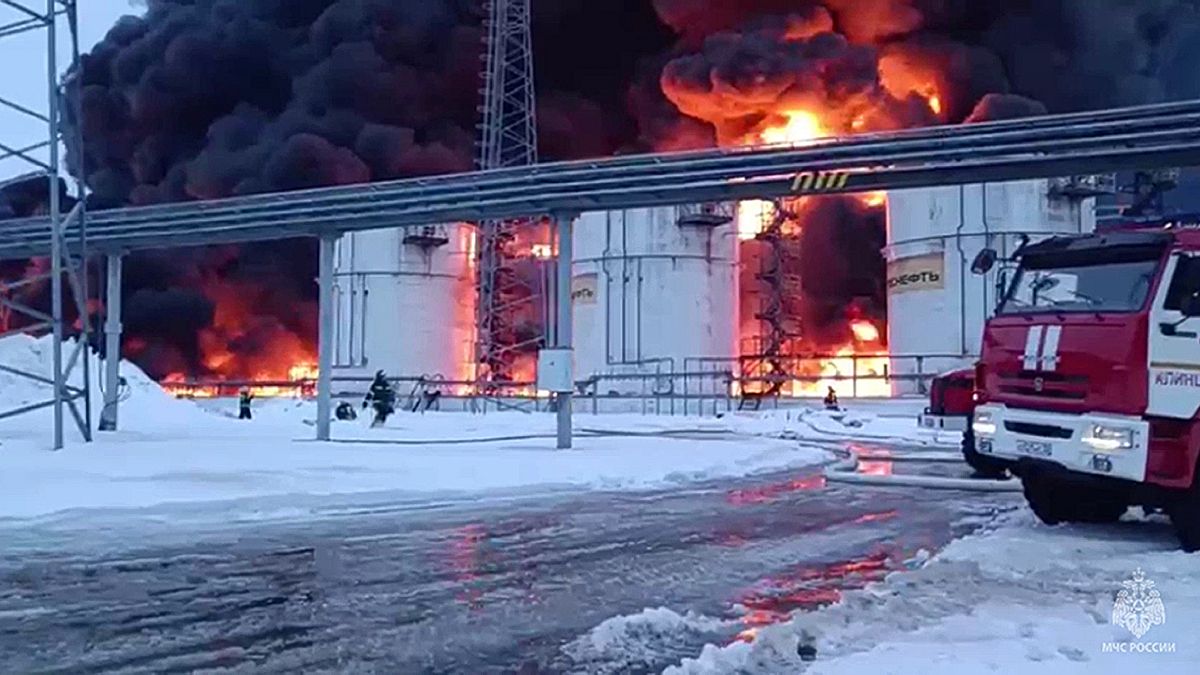Ukraine has claimed responsibility for a series of attacks on Russian military targets, including a drone strike on an oil depot in the Rostov region. The fire at the depot has burned an area of at least 10,000 square meters and has led to the hospitalization of 41 firefighters. The depot was used to supply Russia’s army, and Ukrainian media posted video of the aftermath of the strike. Ukrainian President Volodymyr Zelenskyy has stated that Ukrainian forces have occupied 1,250 square kilometers and 92 settlements in Russia’s Kursk region as part of their offensive.
The incursion in the Kursk region has allowed Ukraine to capture a significant number of Russian prisoners, who could potentially be used in a prisoner swap with Russia. Zelenskyy has stated that the goal of the incursion is to create a buffer zone to prevent Russian long-range attacks on Ukraine. Meanwhile, Russia is attempting to rebuild temporary bridges destroyed by Ukrainian troops and has released footage showing the aftermath of clashes in the Kursk region. The Russian Ministry of Defence has reported the destruction of enemy military equipment and the capture of armored vehicles during the clashes.
In addition to the attacks in the Kursk region, Russia has reported further military actions in various regions of Ukraine. A Lancet drone reportedly destroyed a Ukrainian M777 howitzer in the Volchansky district of the Kharkiv region, while a SU-34 fighter-bomber jet struck a Ukrainian Armed Forces command post and ammunition depot near Glukhov in the Sumy region. The ongoing hostilities between Ukraine and Russia have led to continued conflict and destruction in the region, with both sides engaging in military actions to assert their control.
The situation in Ukraine remains volatile, with both countries continuing to exchange attacks and engage in combat operations. The conflict has led to casualties on both sides, with reports of destroyed military equipment, captured vehicles, and injured personnel. The Ukrainian offensive in the Kursk region has been met with resistance from Russian forces, leading to clashes and attempts by both sides to gain an advantage in the conflict. The ongoing violence and destruction in the region have raised concerns about the potential for further escalation and the impact on civilian populations caught in the crossfire.
The conflict between Ukraine and Russia has implications beyond the immediate military actions, with the potential for wider regional destabilization and consequences for international relations. The involvement of other countries and the broader geopolitical context of the conflict have added complexity to the situation, with concerns about the impact on global security and stability. The ongoing hostilities have also raised questions about the effectiveness of international efforts to resolve the conflict and the potential for diplomatic solutions to end the violence and protect civilian populations caught in the crossfire.
As the conflict in Ukraine continues, the need for a peaceful resolution to the crisis becomes increasingly urgent. The ongoing military actions, attacks, and counterattacks have led to escalating violence and destruction, with the potential for further casualties and displacement of civilians. Both Ukraine and Russia must work towards de-escalation and seek diplomatic solutions to end the conflict and prevent further bloodshed. The international community plays a crucial role in supporting efforts to bring about peace and stability in the region, with a focus on protecting civilian populations and promoting dialogue between the warring parties.











